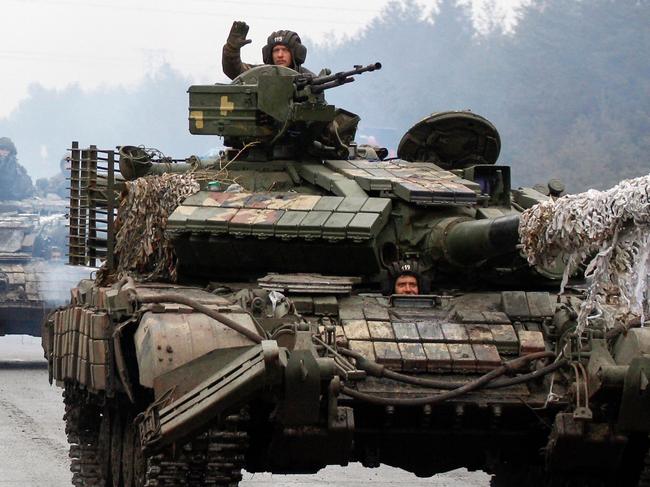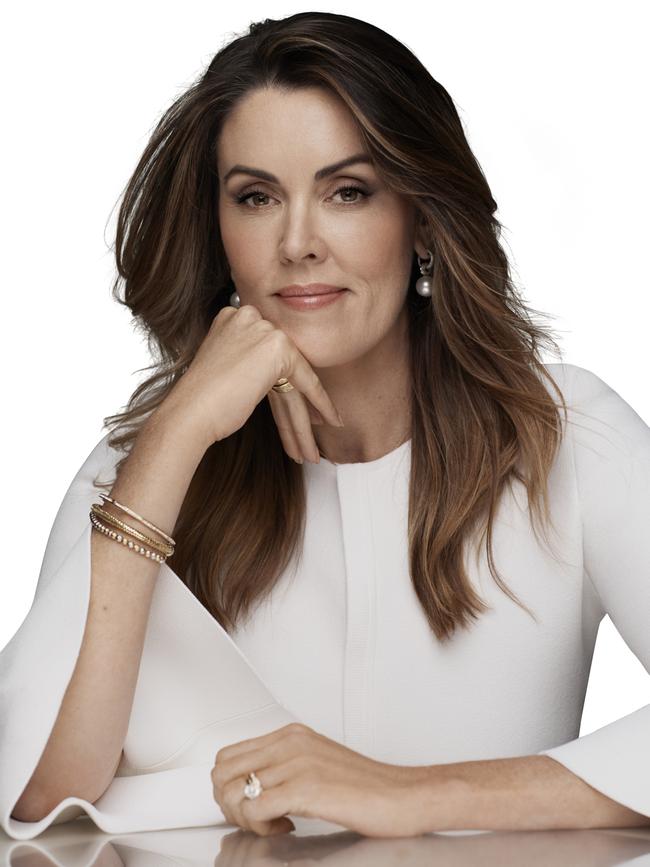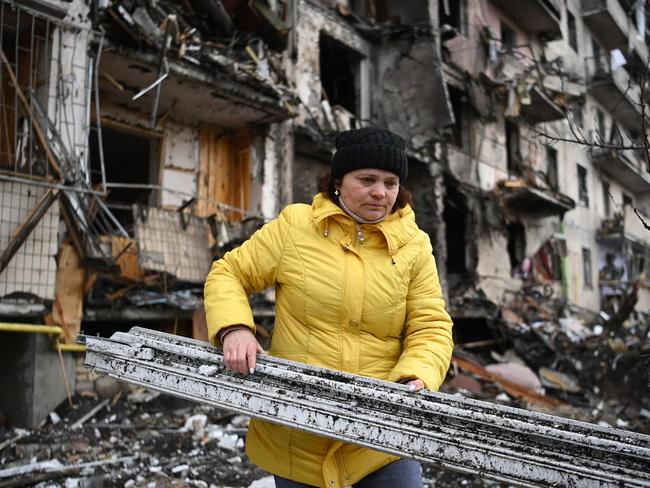Peta Credlin: Russia’s attack on Ukraine will have far reaching consequences on us all
Unless the Ukrainians can swiftly and miraculously defeat the Russian blitzkrieg, what’s happening now will produce a poorer, harsher world; even for us, thousands of kilometres away, writes Peta Credlin.
Opinion
Don't miss out on the headlines from Opinion. Followed categories will be added to My News.
At the start of the pandemic the PM said that 2020 was going to be the worst year of our lives. Unfortunately, things are never so bad that they can’t get worse. Covid was bad, no doubt about that: with premature deaths, unprecedented restrictions on daily life, and gargantuan public spending that will take decades to repay.
But even if cooked up in a Wuhan laboratory, Covid was a random menace. It blighted our lives, but it hardly changed the fundamentals of our society.
Yet the fundamentals are changing and not for the better.
Take climate change. We all want to preserve the only planet we have but does that really mean risking that the lights go out by shifting to exclusively weather-dependent power without any proven back-up; especially given the strategic challenges we now so obviously face?

Take the so-called culture wars. We all want to be decent and courteous to others, regardless of race, religion, or gender. But does that really mean jeopardising women’s sport and decrying January 26 as “Invasion Day” when our society has never been more fair?
And now there’s Vladimir Putin’s war of conquest against the Ukraine. At one level, this is a fight a long way from Australia and lots of Australians wouldn’t even know where to find Ukraine on a map. Yet Ukraine is a sovereign nation, it’s a democracy (however flawed) of over 40 million people, many of whom have long memories of Stalin’s man-made famine where four million Ukrainians starved to death. Why should another megalomaniac Russian dictator have a right to crush and control a free people just because they were once a part of the old Soviet Union?
Then there’s the potential spillover to the rest of Eastern Europe. The Baltic States, now independent countries and members of both NATO and the EU (unlike Ukraine) were once part of the Soviet Union too. So were large parts of Poland, also now part of NATO and the EU, after it was divided between Hitler and Stalin at the start of World War II. Once Ukraine is again a colony of Russia, it’s entirely predictable that Putin will insist that he has “no further territorial demands to make in Europe”, which is about as believable as his previous pretence that he was not going to invade Ukraine.
The feeble response of the world’s great democracies to this invasion, with their ‘wet lettuce’ sanctions, on top of last year’s shambolic departure from Afghanistan by the US, wouldn’t exactly have Putin shaking in his boots; indeed, it’s probably emboldening him to complete his dream of restoring greater Russia.

Boris Johnson’s first “barrage” of sanctions, as the UK PM put it, consisted of restrictions on a couple of Russian banks and oligarchs who’d no doubt hidden their money years ago. Plus, a possible ban on hosting international soccer matches. Seriously? Regrettably they failed to sanction bank-to-bank transactions via the ‘Swift’ system which would really have crippled Russia.
Yet Russia will still get billions out of the West because Europe could hardly stop buying Russian gas even if it wanted to, given it has become so dependent on its hostile neighbour’s gas to keep the lights on once it closed down much of its coal and nuclear base-load power.
In the three decades since the Berlin Wall fell, the idea of war between major countries has become almost unthinkable in the democratic west. We were prepared (just) for “low consequence” wars by special forces in Third World countries; not high consequence wars against “peer competitors” with the potential for heavy casualties. But as former PM Tony Abbott pointed out in a speech in Budapest last week, just because war is unthinkable to us doesn’t make it unthinkable to others.
Prior to the of the Cold War, the US, Britain and other NATO allies used to have hundreds of thousands of soldiers pre-positioned in Europe in case of potential Russian attack. Even though Russia had started its campaign against Ukraine almost eight years ago, with the annexure of the Crimea and the occupation of the Donbas – including the killing of 38 Australians when a Russian missile battery shot down MH17 – until a fortnight ago, NATO, had only a few thousand allied troops in its frontline states.

What’s become horribly plain over the past few days is that, up against a determined enemy, the only option for a country that’s not prepared to fight is to negotiate the best possible terms of surrender.
I’m sure the Morrison government understands that, otherwise it wouldn’t have sought to acquire nuclear-powered attack submarines, but what about the defence bureaucrats who still seem to lack any sense of urgency, let alone the Australian people who have not been asked to make serious sacrifices for their country in two generations?
Make no mistake, unless the Ukrainians can swiftly and miraculously defeat the Russian blitzkrieg, what’s happening now will produce a poorer, harsher world; even for us, thousands of kilometres away. Energy prices will soar; supply chains will be disrupted; military budgets will increase; and at least in Europe, young people might again face conscription. Are we ready for this, and could nations so quick to hide under the doona in response to Covid cope with a serious military threat? As we ponder these questions in Australia, the hard men in Beijing will be carefully watching and weighing the resolve of the US and its allies. The seizure of Ukraine would be serious; the seizure of Taiwan, which unlike poor Ukraine, does have a US security guarantee under the Taiwan Relations Act, would be catastrophic.
It’s hard not to think that we’ve lived through times of unparalleled peace and prosperity, and that those days are now behind us.
WATCH PETA ON CREDLIN ON SKY NEWS, WEEKNIGHTS AT 6PM





